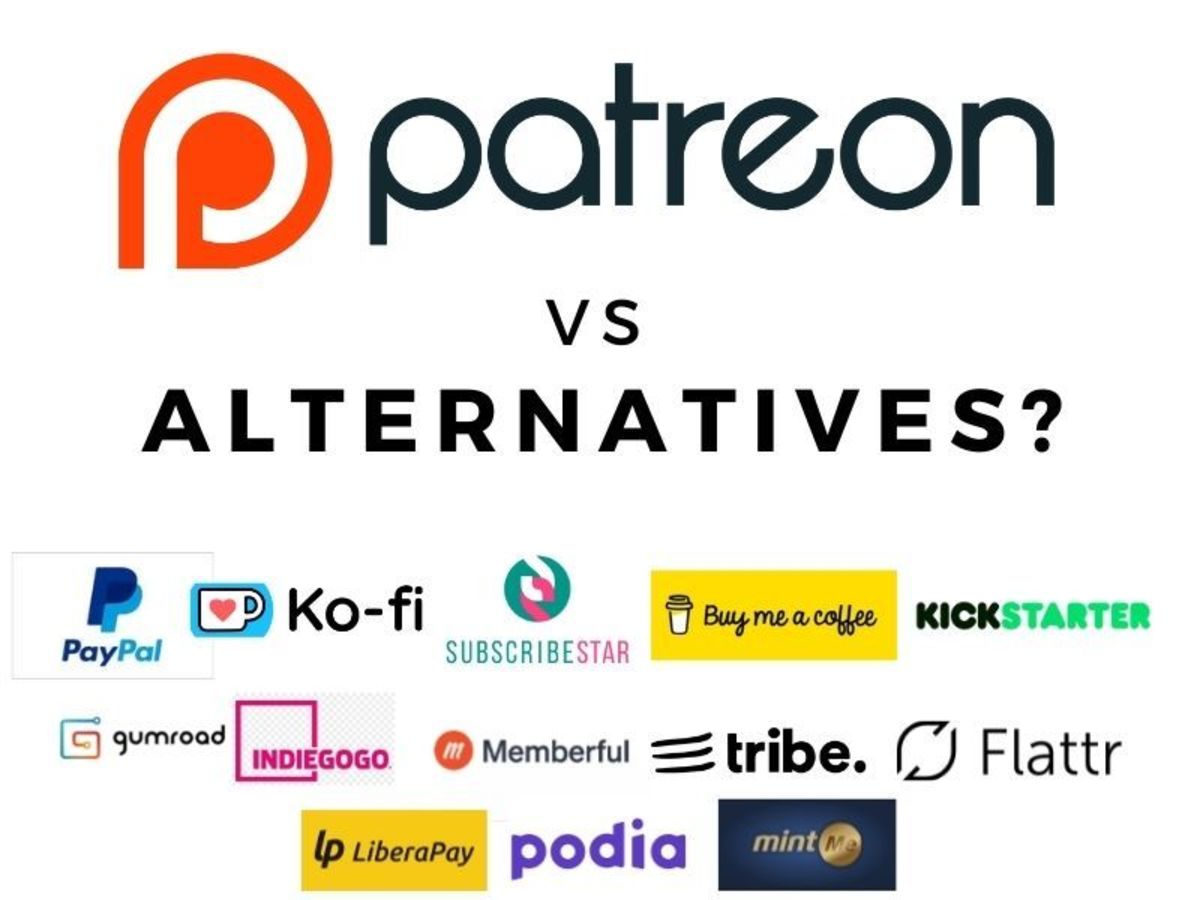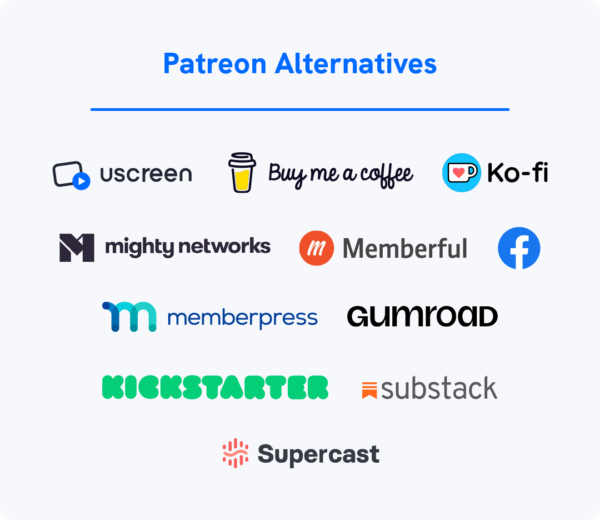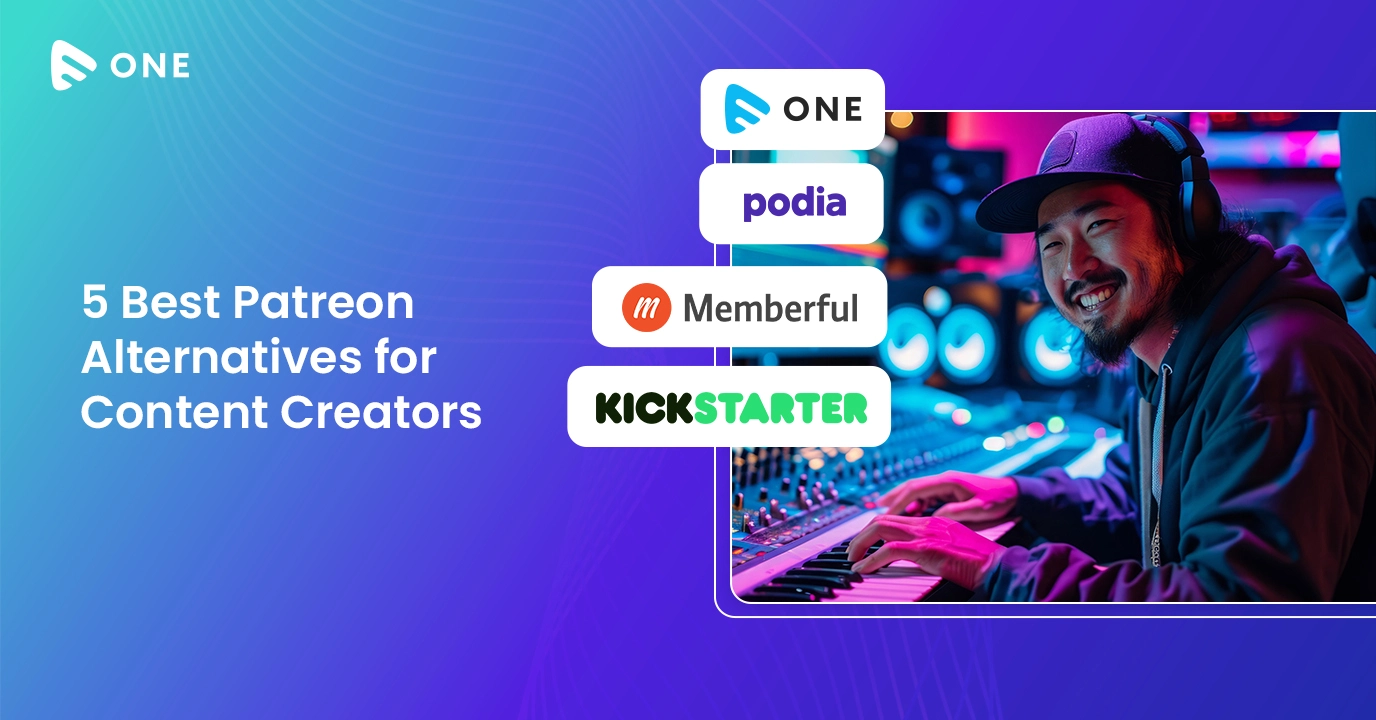Are you a content creator seeking financial independence, but finding Patreon's terms and conditions less than ideal? Navigating the landscape of online monetization requires careful consideration, and the search for the perfect platform shouldn't be limited to a single option.
In today's digital age, the rise of platforms like Patreon has revolutionized how creators connect with their audiences and generate income. However, as the creator economy matures, it's becoming increasingly apparent that a one-size-fits-all approach doesn't suit everyone. Whether it's concerns over fees, payment processing issues, or the desire for greater control over your content and audience relationship, there are compelling reasons to explore Patreon alternatives.
For those seeking financial independence and greater control, alternatives to platforms like Patreon offer compelling solutions. The digital landscape is vast, and the choices are many. Let's delve into a comparative analysis that can help you make an informed decision, exploring the best options available, particularly those that stand out in 2025. The focus will be on functionalities, lower fees, and the overall benefits for content creators.
Exploring the landscape of crowdfunding and membership platforms is crucial for any creator aiming to thrive. In this article, we'll examine some of the top contenders that could be a better fit for your creative and financial objectives. We will compare them against Patreon, evaluating their pros and cons to help you find the perfect match for your needs.
One of the significant factors in the current creator economy is the need for control. For creators, control translates into more flexibility and more independence. The freedom to shape your platform, your audience, and your income stream becomes crucial. Let's look at how this works in different platforms:
WordPress as a Patreon Alternative:
Wordpress offers a unique opportunity for creators seeking full control over their projects. With Wordpress, you can have complete freedom and control over your projects and content. This level of control extends to how you monetize your work.
Key features of using wordpress:
- Complete Control: You have complete control over your website's design, content, and monetization methods.
- Customization: WordPress allows for extensive customization through themes and plugins, enabling you to tailor your platform to your exact needs.
- Monetization Options: You can integrate membership plugins, e-commerce tools, and other monetization methods seamlessly.
However, the journey to find the optimal platform doesn't end there. Let's delve further into the alternatives and their offerings.
Kajabi:
Kajabi stands out as an online course platform. It combines a robust learning management system (LMS) with a suite of powerful marketing tools. Creators can use marketing funnels, landing pages, and advanced customization features to sell courses. The result is a solid set of tools to market and sell courses.
Key features of Kajabi:
- Course Creation: Tools for creating and hosting online courses, including video hosting, quizzes, and assessments.
- Marketing Features: Integrations for marketing funnels, email marketing, and landing pages.
- Customization: Offers advanced customization features for sales and content delivery.
Podia:
Podia offers a unique proposition. It allows creators to sell access to their work on an ongoing basis, just like Patreon. The appealing thing is that you don't pay fees on donations from your contributors, but pay a flat monthly fee.
Key features of Podia:
- Membership: Sell memberships with recurring revenue models.
- No Transaction Fees: Creators keep a higher percentage of their earnings compared to platforms that charge fees on donations.
- Ease of Use: Simplified interface and tools aimed at making the platform user-friendly for creators.
The current landscape and your options:
In 2025, the choices are more diverse than ever. While Patreon has its place, exploring alternatives opens a world of possibilities for content creators. The most important thing when choosing an alternative is your specific needs. Consider your audience and the types of services you wish to offer.
The Problem of Payment Gateways:
One critical challenge many creators face is the restrictions imposed by payment regulations. In some regions, successful transactions on platforms like Patreon are not guaranteed due to government regulations. This is a significant issue. So, what can you do?
Here are a few of the factors you should consider:
- Fees: Assess the platform's fee structure. Some platforms charge a percentage of your earnings, while others have flat monthly fees.
- Functionality: Evaluate the features offered by each platform, such as membership tiers, content delivery options, and marketing tools.
- Payment Options: Ensure the platform supports the payment methods preferred by your audience.
- Customer Service: Consider the quality of customer support offered by the platform.
- Audience Engagement: Look for platforms that facilitate direct communication and interaction with your supporters.
- Control: How much control do you want over your content, audience, and branding?
Here's a comparative analysis of some of the top Patreon alternatives:
| Platform | Key Features | Pros | Cons | Pricing |
|---|---|---|---|---|
| WordPress (with Membership Plugins) | Customizable membership tiers, content gating, direct audience interaction, complete control | Full control over branding, content, and audience relationships; flexibility in payment options; no platform fees. | Requires more technical setup and maintenance; you need to choose and integrate plugins. | Costs depend on hosting, domain, and chosen plugins (e.g., MemberPress, Restrict Content Pro). |
| Kajabi | Online course creation, marketing funnels, email marketing, membership subscriptions | All-in-one platform, integrates course creation, marketing, and sales; comprehensive tools. | Can be expensive; some features may not be necessary for all creators. | Monthly subscription based on features and scale of use. |
| Podia | Digital downloads, memberships, online courses, and webinars; unlimited plans. | User-friendly interface; offers various digital product types; no transaction fees on higher-tier plans | Fewer advanced marketing features compared to Kajabi; Limited customization options on the basic plan. | Flat monthly fee, varying based on features. |
| Memberful | Membership platform with integrations for WordPress, Stripe, and email providers | Easy integration with existing websites, simple and clean user interface. | Limited features compared to all-in-one platforms, dependent on other integrations. | A flat monthly fee depending on the number of members. |
Indiegogo:
If you have a specific project in mind and need to source funding, Indiegogo is a good alternative, particularly for crowdfunding specific projects. Indiegogo offers an alternative that's better suited for regular content creation through a subscription model. It's designed for one-time campaigns.
Google Voice:
Google Voice is a service offered by Google that includes internet telephone calling, SMS/MMS text messaging, voicemail, spam call/text filtering, calling number blocking, and related features. It's not a direct Patreon alternative, but it can be a useful tool for creators who want to offer direct communication with their audience.
Comparative Analysis:
Choosing the right platform depends on your needs. Platforms like Wordpress give you the ultimate control. Others like Kajabi and Podia provide an all-in-one experience that handles everything.
Conclusion:
Finding the right Patreon alternative is a journey, not a destination. The best choice for you will depend on your specific needs, goals, and the nature of your content. It's not about the biggest platform. It's about the one that empowers you and your audience.
The key to success lies in understanding what your audience needs, how you can best serve them, and selecting a platform that facilitates this relationship without hindering your creative and financial objectives. Take the time to research, compare, and choose wisely. Your success as a content creator depends on it.


